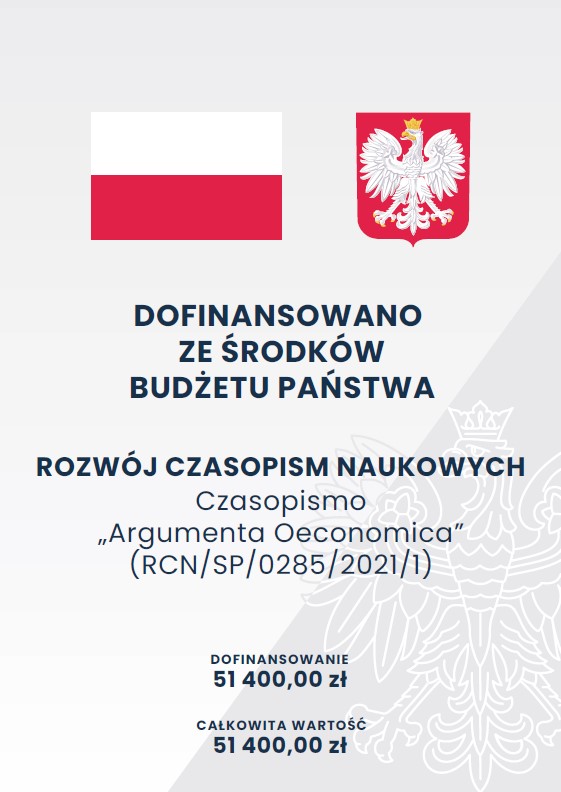Why Family Firms in Poland Choose to Diversify their Banking Relationships
Abstract
This article deals with relationship banking as a multidimensional and relatively complicated set of interrelations between a company and cooperating banks. In this paper, relationship banking is understood as long and intensive partnerships between banks and family firms that exceed simple bundles of anonymous transactions. Relationship banking benefits, for both the bank (credit risk mitigation and cross-selling packages of services) and the borrower (access to credit, "one-stop" dealings and insurance against adversity), compel exclusivity. In this context, the paper aims to identify how family firms decide to cooperate with a given number of banks and why firms make decisions to have multiple bank relationships despite the obvious advantages of staying with one bank. Using multinomial logit models that describe a situation when the dependent variable is discretely selected from the set consisting of more than two categories, we analysed data of more than 390 Polish firms from interview-based questionnaires about the reasons for establishing relationships with two, three or more banks. We find that firms that identify themselves as family firms tend to have a second bank with which they have long worked. If the family is using one of the firm's banks for private affairs, they tend to use three or more banks. Manufacturing family firms tend to use three or more banks. Large family firms tend to establish relationships with more banks. Based on these findings, banks can build their relationships with family firms in a better way.(original abstract)Downloads
Download data is not yet available.
Downloads
Published
2019-01-30
Issue
Section
Articles
License
Copyright (c) 2019 Jerzy Węcławski

This work is licensed under a Creative Commons Attribution-ShareAlike 4.0 International License.







